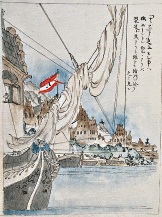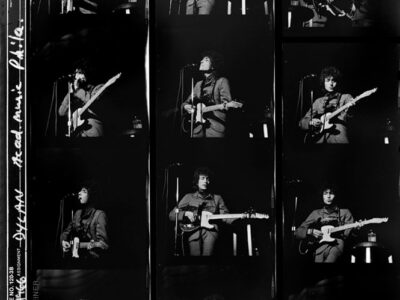
In 1841, a 14-year-old Japanese boy named Nakahama Manjiro was shipwrecked while on a fishing trip and rescued by an American whaler who brought him back to Massachusetts. He became no less than a legend in his home town of Kochi as the first Japanese person to set foot on American soil. After spending more than a decade learning English and living in the United States, he returned home. Manjiro went on to serve as an interpreter for the Japanese imperial government in talks with the United States that led to the opening of Japanese ports to foreign trade after more than two centuries of isolationist policy.
His legend is still celebrated today in America as well as Japan. The Rosenbach Museum and Library in Philadelphia recently opened the exhibit Drifting: Nakahama Manjiro’s Tale of Discovery and commissioned music teacher Rob Redei C’97, of the Philadelphia School, to write a children’s musical based on the original manuscript that tells Manjiro’s tale, the Hyosen Kiryaku. Redei and his cast of kindergarten, first- and second-grade children performed The Adventures of Manjiro at the Philadelphia School with a grand reception. Junji Kitadai, a Manjiro scholar from Kochi, now living in New York, heard of the musical and came to see it. He was so taken by the performance that he spoke to people in Kochi, and soon afterward, Redei says he received an invitation to Japan. So on July 10, Redei; his wife, Cara de la Cruz C’95; a teacher; a parent and four students flew to Kochi, where they were hosted by local families. During their week-long stay, they performed The Adventures of Manjiro at three elementary schools, and visited with the mayor of Kochi City and the governor of Kochi Prefecture. They also exchanged many presents. “The tradition of gift-giving is so prevalent in Japan that we arrived there with an entire suitcase full of gifts, and we ran out a little more than halfway through the trip,” says Redei. On the last night, they performed at a grand gala held in their honor at the Kochi art museum.
Redei recently composed a cello and piano duet that was performed at the Philadelphia Fringe Festival, and he hopes to receive a grant that would allow him to perform this piece on a much larger scale in a Philadelphia theater. In September, he and his wife moved to Hungary for a year-long sabbatical where he hopes to focus on his composing. While in Hungary, he will also be doing some writing and recording for a London television show. Then, like Manjiro, he will return home, where he will continue teaching music to young children.
—Jonas Raab C’02




